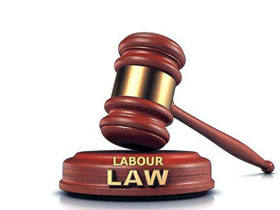Labour Cases

Labour law (also known as labor law or employment law) mediates the relationship between workers, employing entities, trade unions and the government. Collective labour law relates to the tripartite relationship between employee, employer and union. Individual labour law concerns employees' rights at work and through the contract for work. Employment standards are social norms (in some cases also technical standards) for the minimum socially acceptable conditions under which employees or contractors are allowed to work. Government agencies enforce labour law (legislative, regulatory, or judicial).
Indian labour Cases refers to laws regulating labour in India. Traditionally, Indian governments at federal and state level have sought to ensure a high degree of protection for workers, but in practice, legislative rights only cover a minority of workers. India is a federal form of government and because labour is a subject in the concurrent list of the Indian Constitution, labour matters are in the jurisdiction of both central and state governments; both central and state governments have enacted laws on labour relations and employment issues.
⇒ Constitutional rights
In the Constitution of India from 1950, articles 14-16, 19(1)(c), 23-24, 38, and 41-43A directly concern labour rights. Article 14 states everyone should be equal before the law, article 15 specifically says the state should not discriminate against citizens, and article 16 extends a right of "equality of opportunity" for employment or appointment under the state. Article 19(1)(c) gives everyone a specific right "to form associations or unions". Article 23 prohibits all trafficking and forced labour, while article 24 prohibits child labour under 14 years old in a factory, mine or "any other hazardous employment".